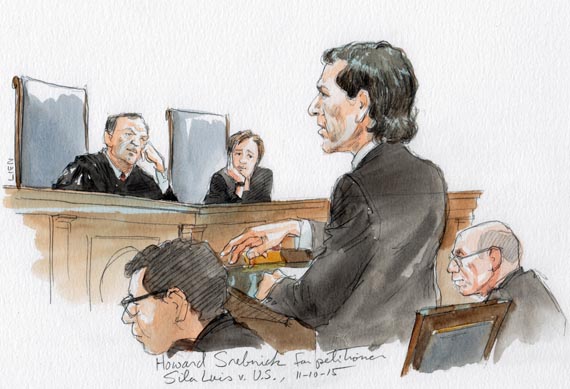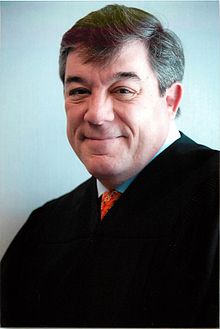The Recorder has more:
In other news, President Obama has nominated a bunch of new judges, some of which in the Middle District, including William Jung. Cool!
To say the filing is colorful doesn't do it justice. Submitted by Marc Randazza of Las Vegas-based Randazza Legal Group, it is peppered with Klingon sayings—including a translation of a phrase from the 1998 film "The Big Lebowski."
By the film studio's logic, the brief argues, everyone who translates something into Klingon, writes a poem in Klingon, or gives a speech in Klingon at a Star Trek convention is a copyright infringer. It adds: "not Quam ghu'vam, IoD!" (For the uninitiated, that's: "This will not stand, man!")
Overall, the language group's argument in Paramount v. Axanar, 15-9938, is that Klingon has taken on a life of its own since Paramount commissioned its creation by linguistics professor Marc Okrand in the early 1980s for the film "Star Trek III: The Search for Spock."
Okrand further developed the dialogue from that film into a functioning language and published a dictionary in 1985. Since then, entire groups of people have embraced it—teaching it to their children, exchanging marriage vows in Klingon, and even establishing the Klingon Language Institute, or KLI, which has translated works of Shakespeare into Klingon.
"Given that Paramount Pictures commissioned creation of some of the language, it is understandable that Paramount might feel some sense of ownership over the creation," the brief says. "But, feeling ownership and having ownership are not the same thing."
According to the brief, Paramount has actually claimed the rights to the Klingon language for many years, but has never asserted it in court until now—"most likely because the notion of it is meq Hutlh." (Translation: "it lacks reasons.")
Paramount once threatened to bring suit against the KLI, it says, but the institute avoided a clash by agreeing to license the use of the language.The fight appears to present a novel legal issue for U.S. District Judge Gary Klausner, who is presiding over the case."
Just as 'great men do not seek power, it is thrust upon them,' this court now has the opportunity to weigh in on the copyrightability of language and declare that there is no basis in either law or policy to allow copyright in a spoken language," the brief says, quoting a line from "Star Trek: Deep Space Nine."
William F. Jung: Nominee for the United States District Court for the Middle District of FloridaWilliam F. Jung is a partner at the law firm of Jung & Sisco, P.A. (formerly Black & Jung, P.A.) in Tampa, Florida, which he co-founded in 1993. He specializes in white collar criminal defense and complex civil litigation. Prior to starting his own firm, Jung served as an Assistant United States Attorney for six years – first in the Southern District of Florida from 1987 to 1990 and subsequently in the Middle District of Florida from 1990 to 1993. From 1985 to 1987, he was an associate for the Tampa, Florida office of Carlton Fields Jorden Burt, P.A. From 1984 to 1985, he served as a law clerk to then-Justice William H. Rehnquist of the Supreme Court of the United States. Jung began his legal career as a law clerk to the Honorable Gerald Tjoflat of the United States Court of Appeals for the Eleventh Circuit. He received his J.D. summa cum laude from the University of Illinois College of Law in 1983 and his B.A. magna cum laude from Vanderbilt University in 1980.





